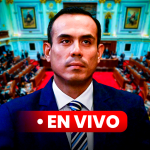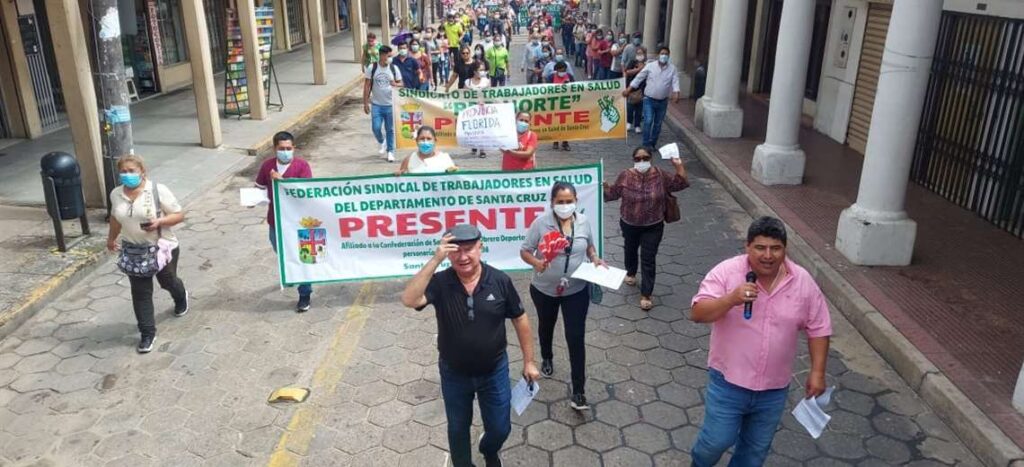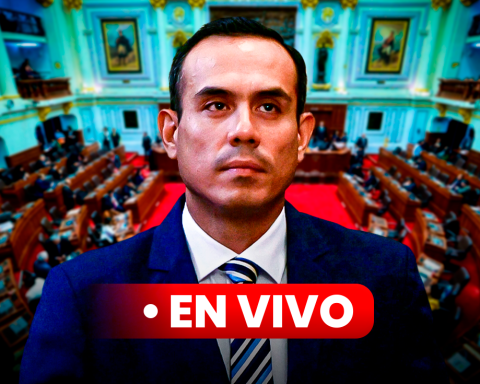one month after first meeting to discuss adjustments, legal issues still prevent the state of Rio de Janeiro from joining the new Fiscal Recovery Regime (RRF), Governor Cláudio Castro said today (23). He met with the Minister of Economy, Paulo Guedes, to discuss the matter.
Upon leaving the ministry, the governor of Rio de Janeiro said that this Wednesday’s meeting resulted in advances, but that it is still too early to “hit the hammer” because of two legal issues. The first is the type of expenditure ceiling to be adopted by Rio de Janeiro. The second consists of the future of the triennium, additional for time of service granted every three years to state employees.
“We continued to make progress on the two main points, which were the issue of the triennium and the spending cap. There will have to be one more round of the legal ones. Now it is a matter of finding the correct thesis and defending it”, said the governor as he left the Ministry of Economy building.
At the last meeting, on February 9, the government of Rio and the Ministry of Economy had reached an agreement on about 30 economic points that prevented the state from entering the new RRF, as measures to reduce the impact of readjustments to civil servants on state accounts. However, there was no progress on the two remaining legal issues (the three-year period and the spending ceiling).
Optimism
According to the Rio de Janeiro governor, there is no date for a new meeting because the solution now depends on the state’s legal department and the Attorney General’s Office of the National Treasury, which may even involve changes to state laws. He, however, said he was optimistic about the progress made so far.
“I am very optimistic. It has everything for Rio to be in the regime. There are no more financial or economic obstacles, or the plan to stop standing, nothing. What there are are legislative issues, some of them that end up bumping into the Legislative Assembly and that we will have to see how to overcome these points”, said Castro.
For the governor, there is good will to reach a consensus and the Ministry of Economy will start issuing positive opinions soon. In his assessment, some obstacles stem from the fact that Rio de Janeiro is the first state to renew the RRF, which will impose requirements for future recovery plans in other states. “The fiscal recovery plan is for everyone, not just for Rio. Therefore, what the state of Rio de Janeiro has to fulfill, all the others will have”, he explained.
Historic
Since 2017, the state of Rio de Janeiro has been in the Tax Recovery Regime, which provides for the suspension of payment of installments of the state’s debt with the Union in exchange for fiscal adjustment measures, such as cutting spending, freezing civil servants’ salaries and local privatizations. In the first three years of validity alone, the state failed to pay BRL 92 billion to the Union.
In 2020 and 2021, Congress approved amendments to the RRF law, increasing the duration of the special regime from six to ten years, with a one-year deadline for submitting a new adjustment plan. Conditions for joining the RRF have been relaxed. The rapporteur’s amendments were removed from the state spending cap and the requirement that local SOEs be fully privatized, with local governments holding shares in the companies, was dropped.
With the changes, Rio de Janeiro presented a new Fiscal Recovery Plan to extend the debt longer and make adjustments with more lenient rules than in the original plan. The new plan would allow for the rescheduling of another R$52.5 billion in debt with the Union by 2030, in addition to the R$92 billion currently suspended. In January, however, the National Treasury issued an opinion against the proposals suggested by the state.

















